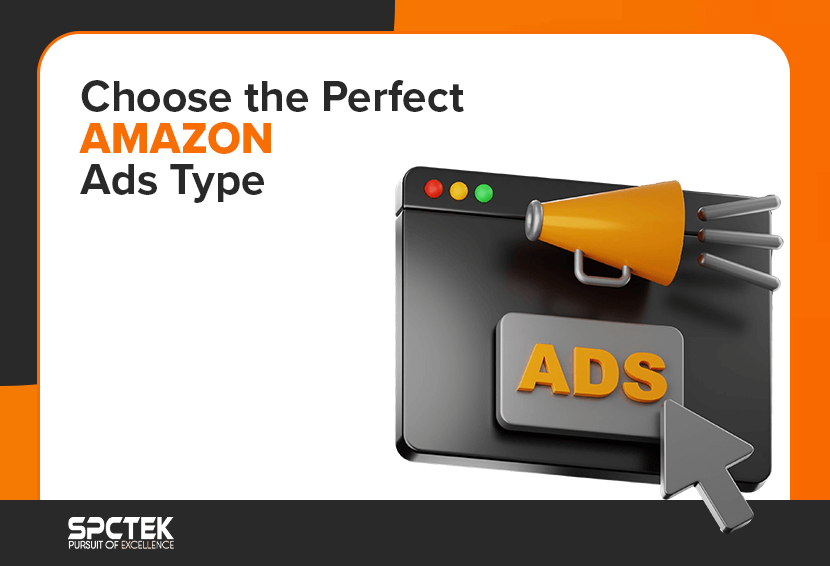Nothing’s worse for an Amazon seller than watching a product just sit there, not selling. Let us reveal some common problems you may face. There is no substitute for hard work to prevent the frequent issues many sellers face when they first begin selling on Amazon.
This article will help you know what is preventing your listing from appearing at the top of Amazon search results and make you understand what is preventing your listing from making sales, and how you can be diligent about it.
1. Right Keyword Selection
One of the most important parts of a successful Amazon listing is doing keyword research the right way. People find things on Amazon mainly through searching.

Customers who visit Amazon often search for what they want unless they come across an external link to a product detail page.
To locate items, buyers may insert several potential keyword searches. Therefore, one of the essential components of presenting items on Amazon is conducting adequate keyword research to appear in the search results.
Missing out on vital search phrases might dramatically reduce your overall Amazon sales.
Here are a few things that you should remember while researching keywords:
- Does my brand or product name already have a search volume?
- Is there a high volume of searches for the keywords my consumers are most likely to enter into Amazon?
- Do similar goods sell well on Amazon?
Most goods will succeed if, at a minimum, one of the preceding questions is answered positively.
Also Read: Top Strategies to Improve Amazon Keyword Ranking and Drive Sales
2. Is your Listing Indexed?
Individual words in your listing’s title, bullets, or other data formats allow you to be indexed for terms in Amazon search.
Each keyword phrase for which you are indexed is an additional doorway a buyer may use to discover your product. Being indexed for one keyword phrase implies that if a buyer puts that primary keyword into the search box, there will be a result anywhere in the search results.
Ideally, you’ll want to appear on page one of highly relevant searches; nevertheless, being indexed for such a keyword phrase is the first step.
Having your product indexed for as many highly relevant keywords as possible is critical to your success on Amazon. Even with A+ Content, you will not get sales on Amazon if your listings don’t show up in Amazon searches. Indexing can be achieved through Amazon PPC techniques.
3. Improve Your Listing Images
Although written material is essential, a picture is worth a thousand words. On Amazon, having well-optimized photos is essential, especially since just your title and images appear above the fold on mobile.

You may suffer from lower conversion rates and pay more in advertising expenditures if you have low-quality product images. Many customers choose one seller over another merely because their product images are more attractive–you might have a great product and still not get sales on Amazon if the images aren’t visually appealing.
Images should emphasize the product, key characteristics, and immediate advantages.
Your main picture has to follow certain rules, but your secondary photos could give important information about your product.
4. A+ Content
Amazon listing optimization is vital for conversion in combination with your product images. When writing content for your product description page, you should always try to keep a delicate balance. Amazon A+ Content appears on 91% of best-seller lists.

Include as many related searches as you can in your title and bullets. This will help index your listing. You must, however, back that up with appealing A+ content to convert customers who visit your listing.
If you don’t focus on both goals, your listing will suffer, and your overall Amazon paid ads expense will rise. People frequently focus solely on the language in the listing’s headline and bullet points.
Also Read: What is A+ Content? Understanding Its Impact on Your Amazon Listings
5. Evaluate PPC Campaigns
So you’ve done everything on the list, but still not getting sales on Amazon. The final step is to evaluate your pay-per-click (PPC) ads. Here are some things to remember:
- Amazon PPC advertising drives customers to the product page, so ensure you’re targeting the right people. Campaigns take money to run, and you want to ensure the potential people see them.
- Examine the keywords you’re utilizing. Find the keywords in your listings first, then cross-reference them with the keyword list that reveals the most researched and greatest conversions.
Also Read: Struggling with Amazon Ads? Hire a PPC Specialist
6. No Positive Feedback
Another big reason for not getting sales on Amazon is a lack of positive feedback. More than 91% of customers regularly read reviews, and 84% trust them as much as they would a personal endorsement of the product.
In short, reviews are critical–you will not get sales on Amazon without positive reviews. They are the primary means by which you express trust, honesty, and a solid reputation to consumers, assuring them that they are making the proper decision in acquiring your goods.

Reviews also help increase your appearance in search results. Products with very few or low-star ratings will have low rankings, while those with numerous or high-star reviews will be ranked higher.
Amazon wants to ensure that its customers are satisfied so that it can lead them to more reliable items of higher quality.
7. Inefficient Pricing Strategy
One of the key reasons for not getting sales on Amazon is that your prices are not competitive. Meaning, you’re prices are too high compared to what your competitors are offering for similar products. Shoppers always scan the offers for similar or identical products and choose the ones that have a lower price–obviously.
Competitor analysis can be a good starting point to improve your pricing strategy; however, you can also use automatic repricing software to automate the repricing process.
Automatic repricing software tracks your competitors’ prices and compares them to yours. You can create rules for the software, so it quickly adjusts your price whenever a competitor drops theirs.
Final Thoughts
Few things are as frustrating for an Amazon seller as not getting sales on Amazon. However, you can turn your halted sales around by focusing on Amazon A+ Content, good quality pictures, keyword indexing, keyword research, and pricing strategy to increase your sales. Making these changes will not only give you results right away but also help you in the long run.
Got More Questions?
If your pricing is not competitive on Amazon, consider conducting market research to analyze competitor pricing and adjust your prices accordingly. You may also explore strategies such as offering discounts, bundling products, or providing value-added services to attract customers.
Product images play a crucial role in driving sales on Amazon as they serve as the primary visual representation of your product. High-quality, clear, and visually appealing images can help attract customers’ attention, convey product features, and instill confidence in potential buyers.
If your Amazon listing has negative customer reviews, address customer concerns promptly and professionally. Consider reaching out to dissatisfied customers to resolve their issues and offer refunds or replacements if necessary. Encourage satisfied customers to leave positive reviews to offset negative feedback.
To differentiate your product from competitors and increase sales, focus on highlighting unique selling points and value propositions. Emphasize factors such as product quality, features, benefits, and customer satisfaction guarantees. Additionally, consider offering exclusive bundles, customization options, or limited-time promotions.






